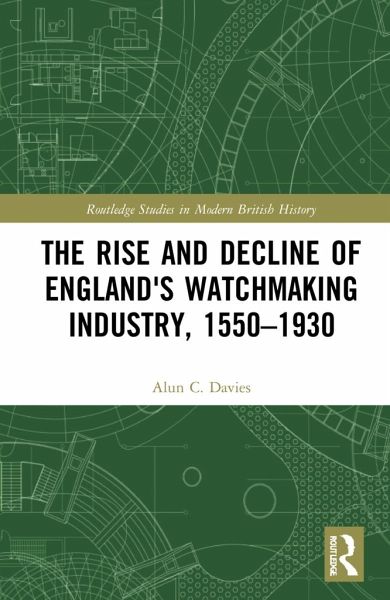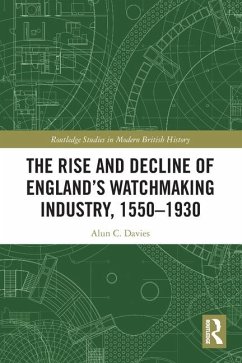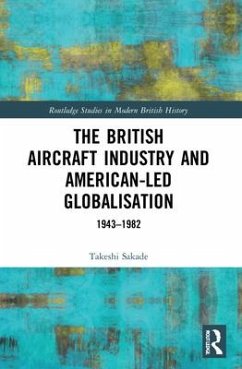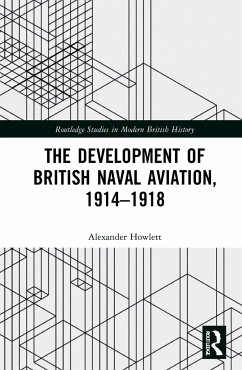"Alun Davies has written a well-researched and lucid study of one of the lesser industries of industrial Britain... [and] His love of the subject comes through in the details of the watch entrepreneurs. One of several merits of Davies's account is his examination of the varied characteristics of watchmaking in its different hubs... Davies's book is an industrial history of considerable quality which will not be bettered for a long time."
Chris Wrigley, Journal of Business History
" ... in-depth analysis and opinion of the extraordinary 380-year history of English Watchmaking, then look no further than the brilliant book, The Rise and Decline of England's Watchmaking Industry, 1550-1930 ... a
fascinating and detailed overview of the English watchmaking industry which serves as an excellent reference ... highly recommended"
MrWatchMaster,
https://www.mrwatchmaster.com/"... clear and well structured narrative ... paints a detailed picture of watchmaking in England, solidly rooted in the context of other comparable artisanal industries in its social foundations, in the domestic and international economy, as well as in world trade and its challenges."
Anthony Turner,
Histoire économie et société revue.
" .... easily readable ... with concise formulations. .... exquisitely researched work truly deserves to be known to a wider public ... the analysis of the preconditions and conditions of [chronometer manufacturing] is a masterpiece and, according to the reviewer, by far the best account currently available."
Gunter Oestmann,
Acta historica astronomiae "An important work which analyses the history of watchmaking in England from a socio-economic point of view spanning more than 400 years. The author Alun C.Davies is a well-known authority in the field of horology, and was formerly Reader in Economic and Social History at the University of Belfast. This volume unquestionably fills a gap in the historiography of the industry in Britain; much has been written regarding the period of the first Industrial Revolution, when England was considered effectively the 'laboratory of the world' ..."
Roberto Fanciulli,
editor of Voce de Hora, Publication of the Italian Association Connoisseurs of Ancient Watchmaking"Dr Alun C Davies' historical survey builds on forty years of research and published papers. An historian and self-described 'horological outsider', Dr Davies has written a comprehensive account of the social, economic and political factors that led to the rise, and subsequent decline, of England's watchmaking industry over an almost 400- year period."
Matt Craddock, Antiquarian Horology
'If you want an in-depth analysis and opinion of the extraordinary 380- year history of English watchmaking, look no further than The Rise and Decline of England's Watchmaking Industry, 1550- 1930 by Alun C. Davies. This weighty tome takes you on an incredible journey from the mid- sixteenth century to the first quarter of the twentieth century through the workshops of some of the greatest horological geniuses and highly skilled journeymen workers who were the lifeblood of English watchmaking... This is a fascinating and detailed overview of the English watchmaking industry, which serves as an excellent reference for those that want to understand the issues faced by the trade over this extended period.'
Andrew Canter,
Horological Journal, July 2023"The subject of time history is vast, and this book does an excellent job carving a focussed and well-structured pathway through a subject that is easy to overcomplicate. (The book draws ) on a vast number of sources across a range of disciplines, as well as key texts .... Davies's work is highly accessible ..... There are many parallels between this story and other manufacturing trades making it an important read for those with an interest in product and consumer revolutions past and present. It makes excellent partner material to those concerned with the social and cultural histories of material culture of the period."
Rebecca Struthers,
Midland History Volume 48, 2023 - Issue 1"The Rise and Decline of England's Watchmaking Industry is a well-researched and excellent addition to horological literature...Alun Davies is a historian who was Reader in Economic and Social History at the Queen's University in Belfast. He has written extensively about horology for decades; this research forms the basis of this monograph. The merits of this book lie in the thoroughness with which Davies explores this history and the rich details he provides on economic, social, and cultural context of the industry. Davies has drawn on a wide range of primary and secondary material for this research. This book is a welcome addition to horological literature and will appeal to an audience interested in horology, economical, and industrial history. I'm afraid a short review cannot do justice to the wealth and depth of information provided and the meticulous analysis that Davies has provided."
Emily Akkermans,
Northern History, 60:2, 276-277, DOI: 10.1080/0078172X.2023.2228844".... Excellent study.... Davies' book is an expression of British industrial history at its best. It is a work based on the exploitation of rich archival documentation and demonstrates the contribution to academic research of a detailed knowledge of industrial products, (watches, clock, and marine chronometers). Davies uses the products as primary sources and successfully integrates their technical characteristics into the overall narrative of the evolution of the English watchmaking industry. This book should be recommended to anyone interested in the history of industrial dynamics and, in particular, the decline of manufacturing in Europe."
Pierre-Yves Donzé,
Economic History Review"This book is a must-read for any serious student of the English watchmaking industry. The prose is a straight- forward narrative, and each chapter is accompanied by pages of footnotes, nearly as many pages as the text itself. An excellent bibliography is also provided......... I recommend you read this book if you are interested in English or watchmaking history."
Russell Barthes,
Watch and Clock Bulletin (NAWCC, USA)














